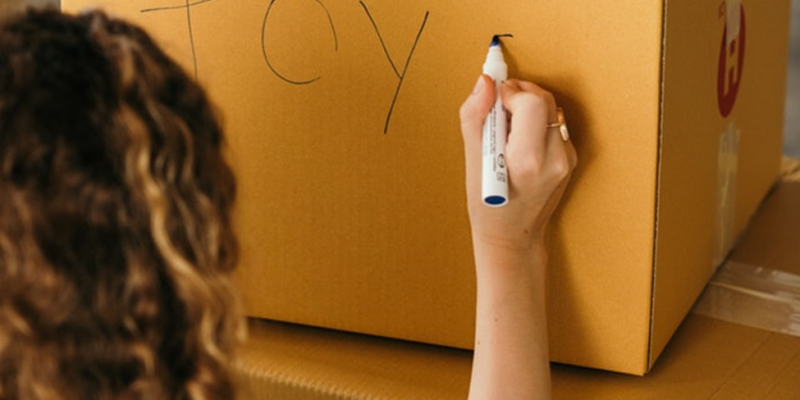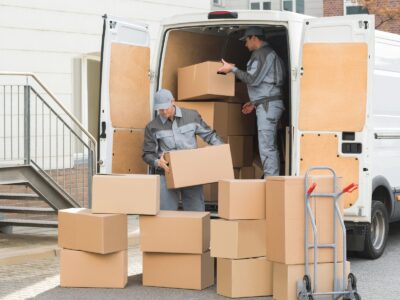Moving to a new residence involves critical tasks like planning, packing, booking, and other considerations that can overwhelm you unless you’re well prepared. However, you can make the moving process more bearable by planning ahead and staying organized. Most importantly, you need to choose moving experts that can help you along the way. Here are some tips to help you simplify the process.
1. Make a Moving Plan and Budget
Making a plan before you move helps you stay organized throughout the process, reducing the emotional and financial stress that comes with relocating. You can use a dedicated folder or an online tool for quick reference to have everything in one place.
A good checklist complements your moving plan to ensure you are keeping up with the timeline. While you can create your checklist from scratch, it’s easier to use an online checklist that directs and reminds you about tasks you may have overlooked.
To minimize the financial stress, create a realistic budget to help you get a clear picture of the moving costs. This step eliminates guesswork when planning to relocate.
2. Consider Items You Can’t Move
There are some items that most moving firms can’t move, and they may include chemicals, hazardous materials, paint, or plants with soil. Most items can be donated to charity as long as they are useful.
However, it’s important to think about the safety of the moving team by ensuring the items don’t pose any dangers. Ideally, garden equipment ought to be cleaned and secured in appropriate packaging. Consult the moving crew for direction whenever you’re unsure about an item. They can guide you on how to package different items or set them aside for storage.
3. Choose a Reliable Moving and Storage Firm
Besides helping you do all the heavy lifting on the day, experienced professionals like Osmon Moving and Storage can safely package delicate items that may get damaged on transit. The security and integrity of your items depend on the company you choose to work with. It’s essential to do thorough research before settling on any firm. This ensures you pay a fair price while ensuring your items don’t break on transit.
4. Declutter As Early As Possible
Removing unwanted items from your house prior to moving can help you save time and money. Eliminating the items you don’t need enables you to reduce the number of items you need to move. It’s best to start decluttering early enough before you think about packing your things. Try to consider the size and design of the house you’re moving to and leave behind anything that won’t fit in the house. If you donate some of your items to charity, keep the receipts and claim deductions on tax returns.
5. Label Your Boxes for Easier Unpacking
Before you start packing, it’s best to create a labeling system that will help you sort your items. You can use numbers or colors to organize and differentiate the belongings. It’s vital to specify the contents, destination, or whether the items are fragile or not. This information helps you to identify your items when unpacking quickly.
Since packaging boxes are identical, having a distinct labeling system helps you sort the packages. You can also take each box to the intended room once you reach your destination. This ensures you don’t spend too much time moving the items from one room to another.
6. Start Small and Stay Organized
While moving can be a hectic process, you can ease the hassle by starting small. When you start tackling the small tasks first, you’ll soon notice that you’ve accomplished significant milestones. Starting small helps manage the stress levels and motivates you to keep going. Nevertheless, being organized is paramount, and it should be a priority from the beginning.
7. Protect Your Belongings
The last thing you want to worry about is whether your belongings are safe in transit. Movers are only responsible for moving your belongings from point A to point B, and they aren’t liable for items damaged in transit, nor are they legally accountable to make repairs or replace damaged goods.
If you’re moving any fragile or large items, take extra care to protect them by using packing materials such as packing paper, bubble wrap, or blankets around valuable items. You can also use extra padding or boxes reinforced for heavy loads and ensure your belongings fit perfectly in the boxes to prevent damage during the move. Ensure your most valuable items, such as irreplaceable pictures or documents, stay with you throughout the transit to avoid loss or damage.
Endnote
Moving involves several tasks that can be stressful, especially if you have a busy schedule. With a little preparation and planning, you can make the process less daunting. While there’s no substitute for organizational skills, a professional moving service can give you peace of mind knowing that you’ve got a reliable team to count on.










Comments